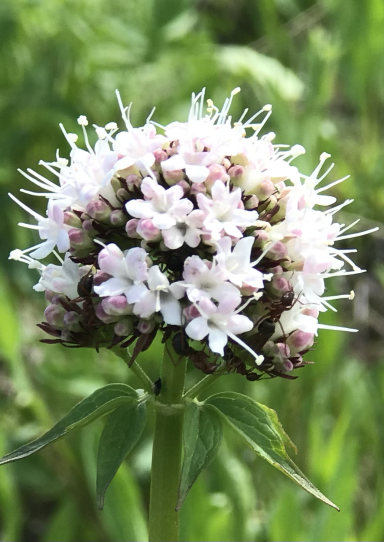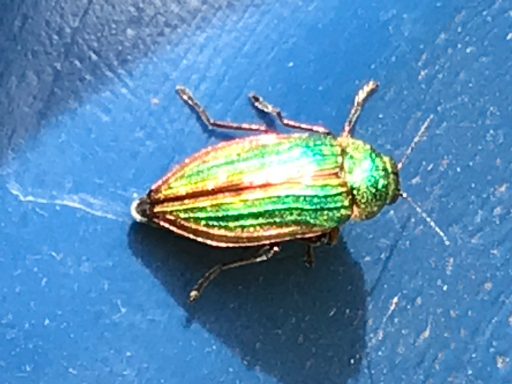Voices Advocating for Earth
Food for Thought
Diet. What does diet really mean? Does it require an adjective? Should it ever be a verb? Let's use some imagination to consider the words definition and eliminate the confusion around its contemporary use.
Not too long ago, the word diet referred to the sustenance for maintaining life: foods humans and other creatures thrived eating or suffered from lack of. Modern human diets and their interpretations are full of vagaries. There are diets to promote health or fight disease, diets to build muscle, lose weight, or satisfy ethics. Modern diets are trendy: low fat, Paleo, keto, carnivore, 5:2.… There are diets of location: South Beach, Mediterranean, Blue Zones; diets to circumvent ingredients, such as gluten, FODMAPS, oxalates, lectins…or diets that include ‘special’ ingredients: nutraceuticals, supplements, and drink mixes. And we don't want to forget: vegetarian, pescatarian, fruitarian, flexitarian…. Modern language is embedded with words to designate what humans will and will not eat.
It is easy to conceptualize how industry benefits from these modern ideas of diet. First, they advertise and sell products that diminish health, then promote and provide products to aid our attempts to feel better. Those consuming pills, powders, and potions, or buying into notions, conform to the biases of scientific reductionists, PhDs, and misguided governmental authorities entangled in a maize of commercial enterprise.
Food for Thought
- Imagine manufacturing with inappropriate materials: beds made of concrete, clothing of steel, footwear of glass.
- Imagine an assembly line missing bots or data: forks without prongs, flat spoons, cars without seats, devises without screens.
- Imagine assembly lines incorrectly programmed: five legged chairs, three lensed sunshades, windows lacking transparency.
Humans well understand how to use materials and technology to fulfill industrial needs, however, most fail to conceive what facilitates or hinders the processes of the human organism, allowing diets and substances of industry and commerce to hack their biological programming.
The human organism is a complex network of connections made through myriad channels of specialized tissues responding to compounds, as with air and water, found in our environments: the foods we eat or provided by the organisms we coexist, ingredients requisite to our assembly lines for function as a species. The diet defining humans and, creating human consciousness, can neither be omitted nor manipulated to fit our desires, common sense for some, although ridiculous to dieters and synthetic biologists and engineers.
Modern diets, similar to commercialized holidays, fashion and beauty, health care…, subjugate human brains to conform to a standard benefiting, not us, industry. Has your money or time returned the investment with permanent weight control, fitness, or vitality? Are you healthier than the person next to you on their special diet?
Long before science or industry, the human brain developed an AI to run our bodies programming, fueled with the natural environments of our existence, without our minds needing to contemplate an ingredient's utility or function, supporting human's evolutionary history for thousands of years into this age of profitable ideas of diet, health, nutrition, and supplementation.
- PBJ
Curious about the diet promoting health and longevity?
Curious about the diets diminishing health and initiating disease.
Do you know?
In the US, the safety, quality control, and efficacy of dietary supplements and products are left to the manufacture's discretion. Let's view the law and its history.
Do You Know supplements fall under the Dietary Supplement Health and Education Act of 1994 (DSHEA), leaving the oversight of today’s 60 billion dollar supplement industry to sellers and ill fated consumers. No required proof of product efficacy or harm, no trialing, just proper labeling for contents.
Do You Know in 1994 there were only 600 supplement manufacturers and 4,000 products compared to today’s 4,000 brands producing 100,000 products. The industry’s market value expected to double in the next ten years, alongside the food fortification market.
Do You Know the latest science indicates that supplements cannot replace a balanced diet and may actually cause harm; the flip side, nearly three-quarters of Americans spend an average of $500 annually on dietary and/or herbal supplements and attest to improvements on health.
As a natural health practitioner for these same 30 years, there has not been one supplement, or combination of, more effective at promoting health and vitality than a natural whole food, high fiber diet and exercise: increasing energy, providing restful sleep, lessoning anxiety…and without disease. During this same time, many trendy medicines and supplements have come and gone, many misunderstood, others proven harmful.
- Jakur
Pinus ponderosa (Frosted Pine Needles and Cone)^
Get to Know Nature
Knowing and embracing nature will inspire us, as citizens of the world, to be conscientious individuals: protecting environments, consuming sustainably, and respecting the human ecosystem.
Tap image to view scientific names and descriptions and uses.
Media and Links
Knowledge is our best friend. Local libraries are an oustanding resource for books, periodicals, videos, and internet access to continue your education, along with these contributions for reading, listening, and watching.
SCIENCE
National Institutes of Health (NIH)- Library of Medicine is the go to, over-funded Center for Biotechnology Information.
Science Direct is another great resource to find the latest studies in many of the sciences.
EDUCATION
The Teaching Company delivers Great Courses, available in audio and video formats, on-line, and through libraries and TV providers.
Wikipedia is the place to go, when you want to know, what there is to know, about nearly everything.
FOOD
The Whole Grains Coucil has a wealth of information for you to get to know many whole grains and locate local retailers.
Search National Farmers Market Directory by state to find a local or destination market.
Tips for fact finding:
-For those who find reading abstracts difficult, begin by reading the introduction, then scroll to the
end and read the conclusion.
-Before accepting any statements of science journalism, scroll to the end of the article to find out
who funded the study. Often, claims being made support the industry funding the study, ie: "beef is
found to be a premium source of protein", study funded by the cattleman's association.
-When choosing lectures beyond the basics of science or history, select the most current,
subjects are continually overturning past findings in just a few years.
Statistics to Ponder
Statistics grab our attention with numbers.
According to a National Institutes of Health study, between 2005 and 2015, drug induced liver injuries from herbal and dietary supplements rose nearly 15%, and more than one quarter of the incidences were products specifically advertised and used for body building. READ >>
A 2018 NIH study states - " more than 20,000 emergency room visits are attributed to adverse events due dietary supplements". READ >>
The Centers of Disease Control and Prevention estimate that more than 40% of school age children in the US have at least one chronic health condition. READ >>
The American Lung Association currently states indoor air quality can contain 2-5 times more pollutants than outdoor air, largely attributed to chemicals found in building materials and consumer products. READ >>
What's Up for Spring
Next season we will examine the concepts of genetic modification and synthetic biology. How much do you know? Share your thoughts and concerns.
Rosa gymnocarpa - Frosted Wild Baldhip Rose (Food) >
PEASANT HOUSE PRESS, LLC
© Copyright. All rights reserved.
This website is human designed and generated. Photos are unaltered and submitted by contributing advocates.
We need your consent to load the translations
We use a third-party service to translate the website content that may collect data about your activity. Please review the details in the privacy policy and accept the service to view the translations.




